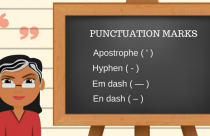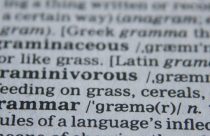Price of Punctuations: The Ten-Million Dollar Comma

Punctuations are a unique aspect of writing and should not be misused under any circumstances. When you think that punctuations don’t matter, remember the Oakhurst Dairy and the missing comma that led to a class-action lawsuit and a ten-million-dollar settlement.
The Oakhurst Dairy Case
The legal case came about due to the use of the serial comma, also known as the Oxford comma. A well-known example of its use is “red, white, and blue”—the comma after white separates white and blue, thereby creating a list of three distinct items.
In March 2017, milk truck drivers for Oakhurst Dairy in Portland, Maine, won the appeal of a suit they had filed. They claimed that they were owed years of overtime pay, and to prove what constituted overtime, they cited the following wording:
“The canning, processing, preserving, freezing, drying, marketing, storing, packing for shipment or distribution of: (1) Agricultural produce; (2) Meat and fish products; and (3) Perishable foods.”
The spotlight was on the phrase “packing for shipment or distribution of.” If the serial comma had been inserted after the word “shipment,” then “packing for shipment” would be distinguished from “distribution.” However, without the comma, “packing” and “distribution” were lumped together as a single work activity. The truck drivers asserted that they were not involved in packing, only distribution, and therefore the exemption from overtime did not apply. They claimed that they were owed overtime pay for the previous four years. The judge for the case, David J. Barron, saw the ambiguity in the wording and ruled that the Oakhurst Dairy had to relinquish ten million dollars to the drivers.
The Purpose of Punctuation
Academic writers might wonder, “What is the essential purpose of punctuation?” Section 6.1 of The Chicago Manual of Style offers this: “To promote ease of reading by clarifying relationships within and between sentences.”
Communication between people, whether written or spoken, can be difficult enough, especially when it crosses geographies, industries, ages, or cultures. Making careful decisions about punctuation helps in clarifying thoughts and ideas.
As an example of this issue, consider the sentence “We loved the cream sauce over rice, asparagus and macaroons with caramel.” Without the serial comma after “asparagus,” the reader is led to believe that all the foods listed—rice, asparagus, and macaroons with caramel—were covered with cream sauce. However, with the comma present, it is clear that rice, asparagus, and macaroons are separate items and that “cream sauce” applies only to “rice.”
Grammar vs. Punctuation
Editorial enthusiasts often complain that the word grammar is sometimes used to refer to all aspects of written communication—that is, spelling, grammar, and punctuation combined as one package. In the title of an article on the Oakhurst Dairy, we read, “Grammarians rejoice in the $10 million comma,” and a writer for The New Yorker calls the case “a feast of subtle delights for anyone with a taste for grammar.” It is important to remember how grammar and punctuation are discrete aspects of writing. The Chicago Manual of Style devotes an entire chapter of 100 pages to grammar and follows it with a 50-page chapter on punctuation. Spelling and grammar create the foundation of the sentence; punctuation provides the final, but vital, touches of clarity.
Returning to the infamous Oakhurst Dairy case, The Maine Legislative Drafting Manual states that commas are probably the most misused and misunderstood punctuation marks in legal drafting and, perhaps, the English language. Use them thoughtfully and sparingly.” Punctuations serve a critical purpose in communications. Attorneys, educators, and historians will speak of the Oakhurst Dairy and the “ten-million-dollar comma” for years to come. At the same time, writers will take care to ensure that their work does not include the punctuation faux pas that goes viral on the Internet or ignites an expensive and notorious lawsuit.
References
- Office of the Revisor of Statutes (August, 2009) Maine Legislative Drafting Manual. Retrieved from http://maine.gov/legis/ros/manual/Draftman2009.pdf
- Shampa Dhar-Kamath (March, 2017) Curious case of the $10-million comma. Retrieved from http://www.newindianexpress.com/opinions/columns/shampa-dhar-kamath/2017/mar/19/curious-case-of-the-10-million-comma-1582979.html
- Mary Norris (March, 2017) A Few Words About That Ten-Million-Dollar Serial Comma. Retrieved from http://www.newyorker.com/culture/culture-desk/a-few-words-about-that-ten-million-dollar-serial-comma
- Roslyn Petelin (March, 2017) Grammarians rejoice in the $10 million comma. Retrieved from https://theconversation.com/grammarians-rejoice-in-the-10-million-comma-74824
- Ann Edwards (March, 2017) What Is the Oxford Comma and Why Do People Care So Much About It? Retrieved from https://www.grammarly.com/blog/what-is-the-oxford-comma-and-why-do-people-care-so-much-about-it









